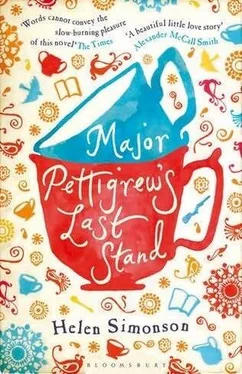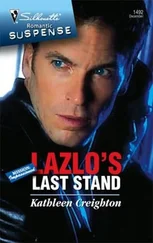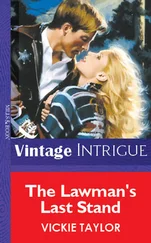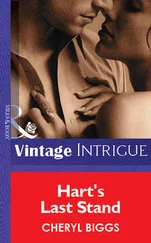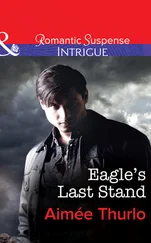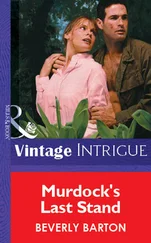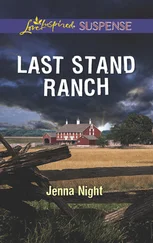“What? Oh, yes, of course I should,” said Grace. “Though I’m sure they’ll be thrilled with everything.”
“My husband and I would be pleased to come and meet with your colleagues if necessary,” said Mrs. Khan. “Since we know so many of them already, we would be delighted to help make them comfortable with the Rasools’ wonderful catering. I can tell you I’ve used Mrs. Rasool on many occasions for my own functions.” The Major caught sight of Mrs. Rasool rolling her eyes at Mrs. Ali. Mrs. Ali smothered a giggle and put down George, who ran back to his mother.
“That sounds lovely,” said Grace in a vague manner. As the Major shook hands with Mrs. Khan, he couldn’t help feeling sorry for her. Regardless of her husband’s prominence, or their generosity, he thought it quite unlikely that Daisy or the membership committee would have any interest in entertaining the question of their joining the club. He could only hope they would have the decency to refuse the Khans’ generous offer and keep things properly separated with cash instead. He made a note to have a quiet word with Grace later on.

On the way to Little Puddleton, Grace elected to sit in the back of the car, where she sprawled at a strange angle and, after a few moments of heavy traffic out of the town, declared herself to be feeling just the tiniest bit green.
“Would you like me to stop the car?” asked the Major, though he could only manage a half-hearted attempt at sincerity. It was getting close to three and he did not want to disappoint Roger by being late. He accelerated as the road became clear and ran the heavy car effortlessly up over the crest of the hill.
“No, no, I’ll just rest my eyes,” said Grace in a faint whisper. “I’ll be fine.”
“I have some eau de cologne wipes in my bag,” said Mrs. Ali. She rummaged in her tote and handed back to Grace a small jeweled bag. The light scent of flowers in alcohol invaded the car.
“These are wonderful,” said Grace. “I’ll feel right as rain in just a jiffy, and then I can’t wait to show you the new alpaca yarns, Mrs. Ali. It’ll be the highlight of our afternoon.”
“I am to be converted to the joys of knitting,” said Mrs. Ali, smiling at the Major.
“My condolences,” he said.
As they made the long slow swoop downhill into Little Puddle-ton, the Major tried keep up a good speed and ignore the stifled groans from the backseat. He was sure Grace would feel much better once he dropped them both off at the craft shop. Just the sight of all that colored yarn would no doubt cheer her up.
The village green was as obsessively manicured as the Major remembered. Wooden posts with a fresh coat of whitewash held up a knee-high chain all around the edges of the cropped grass. Bronze signs warned people to keep off except for concert afternoons. Gravel paths curved this way and that like some strange Venn diagram. The gazebo at one end looked across the elliptical duck pond, on which floated three bleached-looking swans. There were always just three and it fascinated the Major to try to work out which was the odd one out and why it stuck around. The cottages and houses of the village huddled together companionably. An army of topiaries in terracotta pots guarded pastel front doors. Window boxes foamed with painterly foliage. Windows twinkled with custom double glazing.
The shops occupied a small street running away from the green. The Major pulled the car up in front of the Ginger Nook. Its brimming windows offered a cornucopia of cushion covers waiting to be cross-stitched; dolls’ houses awaiting paint and furniture, and baskets of wool skeins in a rainbow of colors.
“Here we are,” said the Major in what he hoped was a jolly, rallying tone. “Shall we say I’ll come back for you in one hour?” There was only a groan from the backseat. In the mirror, he caught a glimpse of a gray face in which Grace’s pink lipstick stood out like new bricks.
“Or I can try to be quicker,” he said. “My son just wants me to have a look at a cottage with him. Seems to think I could help make a good impression.”
“Grace, I think you’ll feel much better in the fresh air,” added Mrs. Ali, who had turned around in her seat and was staring with concern. “I’ll come around and help you out.”
“No, no,” whispered Grace. “I can’t get out here, not in front of everybody.” To the Major, the road appeared largely deserted. The Ginger Nook itself seemed to have only a couple of ladies browsing.
“What should we do?” he asked Mrs. Ali. The clock on the church steeple was pointing to three and he was beginning to panic. “I am already expected at Apple Cottage.”
“Why don’t we go there?” said Mrs. Ali. “You can go in, and I’ll walk with Grace in the lane. Would that be all right, Grace?” There was another indistinct groan from the backseat.
“Wouldn’t you be happier sitting on the Green?” asked the Major, horrified. “There are some lovely benches by the pond.”
“She might get cold,” said Mrs. Ali. “It would be better if we stay near the car, I think.” She looked at him rather sternly. “If our presence in the vicinity won’t spoil your good impression, of course?”
“Not at all,” said the Major, who could already imagine Roger’s raised eyebrows. Perhaps, he hoped, he could park a little away from the cottage and walk there.
Apple Cottage was at the end of a small lane, which ended in a five-bar gate and a field. The Major was already upon the place before he had time to stop and park. Sandy’s Jaguar was parked by the field, leaving room for another car directly in front of the cottage’s front gate. The Major had no choice but to pull up there. He could see Roger’s brown head over the hedge next to Sandy’s shiny blond hair. The top of a brown felt hat indicated the presence of a third person: the widow Augerspier, he assumed. His son was looking up at the cottage roof and nodding as if he had some expertise in the evaluation of rotting thatch.
“Here we are,” said the Major. “I don’t expect to be too long. I’ll leave the car unlocked for you.”
“Yes, please go ahead,” said Mrs. Ali. “Grace will feel much better after a walk, I’m sure.” As the Major got out of the car, Grace was still groaning. He hurried through the gate of the cottage and hoped her groans wouldn’t carry too far on the still afternoon air.
Mrs. Augerspier was from Bournemouth. She had a long face set in a slight frown, and lips that seemed thinned by sourness. She wore a stiff suit of black wool. Her hat boasted black feathers sweeping in serried rows across her sunken forehead.
“Ah, my father was a colonel in the military,” she said when introduced. She did not specify which military. “But he made his money in hats,” she added. “After the war, there was much demand for European hats. My husband took over the business when my father died.”
“From military to millinery,” said the Major. Roger glared at him as if he had flung an insult and then turned a wide smile toward the dead crow on the widow’s brow.
“They certainly don’t make hats the way they used to,” he said. He held the smile as if waiting for a photo to be taken. His teeth seemed larger and whiter than the Major remembered, but perhaps it was just an illusion caused by the artificial stretch of the lips.
“You are so right, young man,” said the widow. “When I was married I had a hat covered entirely in swan’s feathers. But of course, you can’t get the wings now. It’s a great pity.” The Major thought of amputee swans paddling on the Little Puddleton pond.
“Is that a real vintage hat?” asked Sandy. “I just have to send a picture to my editor friend at Vogue magazine.”
Читать дальше
